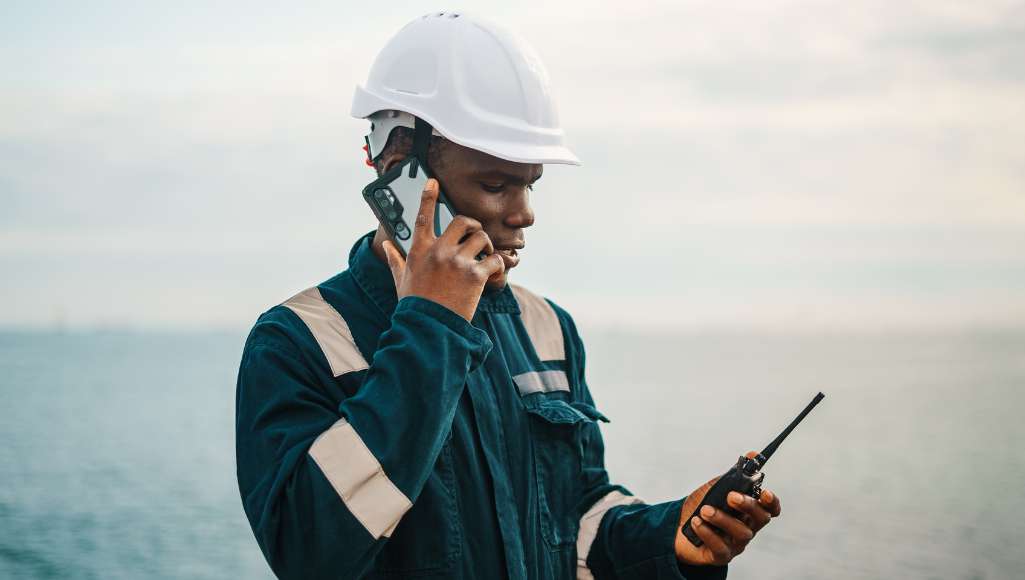
Remote Seafarers Need Effective Healthcare Solutions
Delivering effective healthcare at sea can be challenging, but especially so in remote parts of the world, where operators are obligated to minimise their impact on the region’s limited resources.
Most commercial ships in remote waters operate with a small crew and finite resources, and are minimally equipped to handle anything beyond routine care, such as treating symptoms and dressing injuries. Limited onboard care is especially concerning when seafarers working in remote waters require immediate assistance or disembarkation.
This is where a proactive, comprehensive approach to remote maritime healthcare is invaluable, starting with preventive measures to reduce the risk of injury, accident, or sudden illness. Effective care in remote areas requires long-term planning, with strategic policies and procedures, crew training, proactive wellness interventions, advanced connectivity tools, and more.
Effective Healthcare at Sea Starts with Prevention
As the old saying goes, “An ounce of prevention is worth a pound of cure.” Effective healthcare for commercial crews in remote locations should proactively address things like sleep, nutrition, air quality, environmental safety, training and sustainable working hours. Together, these measures help foster a healthy, alert and productive crew.
Other initiatives, such as entertainment, personal time, education, communication tools, mental health support, and freedom from abuse and harassment further contribute to a happy, emotionally balanced working environment. The data on this is clear: Happy and healthy workers are more productive and less prone to accidents, injuries and illness.
When crew members are too sick to work, it puts pressure on colleagues, which can lead to injury. A healthier crew leads to safer vessel operations, better outcomes and a happier team, and people are the maritime industry’s most important asset.
From a financial point of view, prevention can save the industry up to 20% annually. According to a study by the International Maritime Health Association, 1 in 5 ships per year are forced to divert course for medical reasons. The combined hard and soft costs of a diversion averages out to $180,000 – far more than it would cost to implement a proactive total healthcare solution.
OneHealth by VIKAND: A Total Healthcare Solution
Recognising the impact of comprehensive remote maritime healthcare, VIKAND developed OneHealth – a proactive, comprehensive suite of tools and services designed to maximise onboard health and wellbeing.
Each ship we serve gets a dedicated shoreside medical professional with real maritime experience. Every month, they connect with vessel command through video chat to review topics such as crew health and wellness, illness and injury rates, environmental concerns, medication and medical supplies, training needs and more.
Based on these calls, the medical team can recommend evidence-based, cost-effective wellness measures that are easy to implement. Beyond this, the team is available for video consultations with each crew member. Over time, they develop a relationship built on trust, familiarity and continuity, so they can better serve their individual healthcare needs – both physical and mental.
Shoreside support is also valuable in emergencies. For example, using OneHealth’s 24/7 telehealth support, a ship deep in remote waters can connect live with shoreside experts able to perform remote examinations, urgency evaluation, incident management and more.
Conclusion: Before Sailing to the Ends of the Earth, Be Prepared
OneHealth by VIKAND was designed to give crews total confidence as they sail into the unknown. Starting with preventive measures to improve safety, nutrition, air quality, sleep, fitness, lighting and more, OneHealth aims to maximise a crew’s health, happiness and productivity while reducing their risk of error, accident and injury.
Over time, these benefits can extend far beyond the crew itself, as operators experience healthier P&Ls, increased productivity, better crew retention, and fewer diversions and disembarkations. Meanwhile, remote communities will find their limited local resources under less strain, and the environment will benefit from fewer emissions due to inefficient fuel consumption and wasteful, costly diversions.


